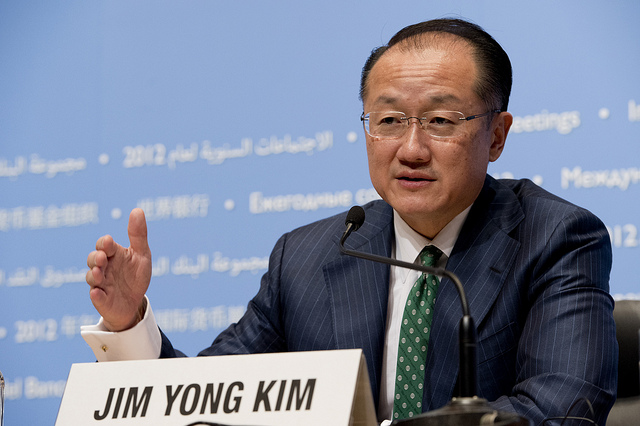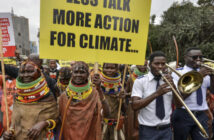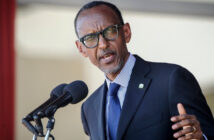The World Bank announced a $16 billion plan to help African communities adapt to climate change, which poses threats ranging from food-price increases to more frequent droughts and the rising risk of malaria.
The African Climate Business Plan outlines steps for safeguarding land, water, cities and humans from adverse climate change effects such as extreme weather. It also aims to build more renewable energy and early warning systems. The proposals will be presented at the 21st United Nations Conference on Climate Change, or COP21, in Paris from Nov. 30.
A fair global climate agreement at the UN talks would take into consideration the fact that African countries suffer disproportionately from global warming, said World Bank Group President Jim Yong Kim. “Any African leader will tell you that they’ve had very little role putting the carbon in the air,” Kim told reporters Tuesday during a conference call. “But they’ve suffered most from the impact of climate change.”
The Washington-based development bank warned that climate change could lead to 43 million more Africans living in poverty by 2030 unless action is taken. The continent requires $5 billion to $10 billion of investment per year to adapt to a 2-degree Celsius increase in temperatures, it said, referring to an international goal for limiting global warming
40 percent of the $16 billion will come from the World Bank through its International Development Association, a unit that works with the world’s poorest countries. Other development partners will probably contribute $2 billion, with another $2.2 billion coming from “climate-finance instruments,” the bank said.
The private sector is expected to provide $3.5 billion. The World Bank said it still needs to mobilize another $2 billion to reach its target. The African Development Bank last month said it will boost its climate financing to $5 billion per year by 2020.




